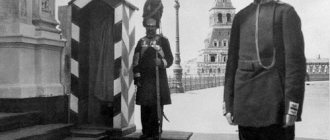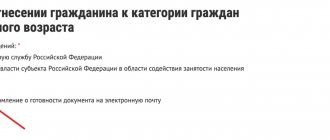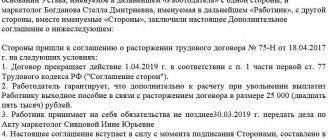The procedure for selecting candidates, making decisions on admission, and certain nuances associated with employment in the Ministry of Internal Affairs system are determined by the following regulations:
- Federal Law “On service in the Department of Internal Affairs of the Russian Federation” No. 342 dated November 30, 2011.
- Regulations on service in the internal affairs department (approved by Resolution of the Armed Forces of the Russian Federation No. 4202-I of December 23, 1992)
- Order of the Ministry of Internal Affairs of the Russian Federation No. 595 of July 18, 2014.
- Instructions on the procedure for selecting citizens for service (work) in the Department of Internal Affairs of the Russian Federation (Order No. 595).
For work (service) in the Ministry of Internal Affairs, candidates from 18 to 40 years old are considered (for the police - up to 35).
| Basic requirements for candidates | Employment restrictions | Basic documents required for employment |
| At a minimum, an applicant must: speak Russian fluently, have secondary education, meet medical conditions and physical fitness | The following candidates will not be considered: · non-residents of the Russian Federation (stateless persons, with a residence permit, the right to permanent residence, with another citizenship); · if you have a criminal record; · partially or completely incompetent; · accused (suspects) in a criminal case; · when providing false (forged) documents; · under other circumstances determined by Art. 14 and 17 Federal Law No. 342 | Passport; insurance certificate; military registration documents (those liable for military service, conscripts); education document; employment history |
Gender, nationality, race, religious views, membership in public groups, social origin, property (official) status of the candidate are not taken into account when hiring.
How to enter the Ministry of Internal Affairs: requirements for candidates
When accepting an applicant to an educational institution, the Ministry of Internal Affairs is guided by the following criteria:
- Education. A graduate of the 11th grade must have a certificate of secondary general education. If the student left school after the 9th grade and entered college, then he must provide a document confirming his graduation from this institution;
- Fitness level. The educational institution of the Ministry of Internal Affairs sets its own internal exams to determine the physical fitness of the applicant;
- Medical checkup. For admission, a health certificate in form 086u is required;
Certificate of health in form 086у - Psychological fitness. The mental health of candidates for service in the internal affairs system is assessed;
- Drug testing. The test results must be negative according to all criteria.
It is also recommended that graduates successfully (80+ points) pass the Unified State Exam (the unified state exam. The set of subjects depends on the faculty, but Russian language and mathematics (basic or major) are required. Most often, social studies and history are required.
Answers to frequently asked questions
Question No. 1: What does “suitable, qualified” mean? What qualifications does a first-time applicant need to have in order to meet the requirements?
As for qualifications, the requirements put forward for them relate to the candidate’s education. Thus, persons with secondary general education can apply for the positions of ordinary and junior commanding officers. You must have at least secondary vocational education to work in mid-level management positions.
Higher professional education is required to work in senior (higher) management positions. Failure to meet these criteria may also be a reason for refusal.
Who is blocked from entering the organs?
At the stage of admission to a university, an applicant may not be suitable based on the results of a medical examination, fail the Unified State Examination (or score insufficient points), or fail to pass psychological selection.
When applying for a job, other criteria are considered. A citizen will not be able to work in law enforcement agencies if:
- he has his own business;
- he is not ready to deal with state secrets;
- he or his close relatives have problems with the law (convictions, arrests, convictions).
Those who have not served in the army can get a job, but without the right to defer conscription. Employers often refuse to work for those whom the army has bypassed, although there is no such clause in the law.
Features of the police profession
In addition to ordinary tasks where a police officer may be involved, we will discuss different aspects of this service.
pros
- Like the military, they have a full benefits package . Police officers can count on free treatment, benefits in various government institutions, as well as free travel and other types of social support;
- Job prestige and career growth . With successful service, you can move up the career ladder, receive a higher rank, and people also respect police officers for their work and ensuring safety;
- Early retirement . Many police officers continue to serve and, accordingly, their income increases;
- Demand for the profession . The search for police officers is ongoing, since there are many tasks, but there are always not enough people;
- Opportunity to study for free at universities of the Ministry of Internal Affairs of the Russian Federation.
Minuses
- High risk to life and health. You never know what can happen and there is an unforeseen danger in this;
- Irregular work schedule . A policeman may be unexpectedly called to duty and must appear;
- There is a lot of communication with law enforcement violators, and this is always a big psychological burden;
- Not too high salary level . Although there is a demand for police officers in the labor market, this is not balanced by income levels.
What you need to get a job in the police: list of documents
To work in the police, you need to provide the following package of documents:
- Statement of desire to enter the service;
- Passport;
- The questionnaire, issued by the personnel department at the place of residence, is filled out on the spot;
- A short autobiography, handwritten;
- Certificates of completed education/qualifications;
- Military registration documents;
- Work record book (if you have work experience);
- A document confirming registration with the tax office;
- Information about income, property - yours and your spouse’s;
- Written consent to carry out activities related to access to state secrets, checking the accuracy of the information provided;
- Written consent to the processing of personal data.
The application with all attached documents is accepted at the local personnel department.
How long does it take to get hired?
Employment procedure:
- Writing an application to the HR department. It is accompanied by a package of documents prepared in advance.
- A visit to a staff psychologist (possible only after receiving a referral). At the same time, the HR department checks the information provided by the applicant: criminal records, business activities, etc.
- Visit doctor. If the applicant was interviewed by a psychologist, and his documents were found to be original, he is sent to the medical unit of the department.
- Visit to the psychophysical diagnostic center.
- Passing the interview.
- Completing an internship. In most cases, the internship is carried out in a barracks position.
The entire employment procedure takes from 3 months to six months.
What tests do you need to take?
The most important tests are physical exercises:
- For men: pull-ups (minimum 13 times = 55 points) or push-ups (minimum 40 times = 55 points), shuttle run (26.0 = 55 points). The test can be considered successful if you score 105 points for 2 exercises;
- For women: push-ups (minimum 7 times = 35 points) or bend-downs (17 r/min = 33 points), shuttle running (33.8 = 33 points). The test is considered successfully passed when you score 65 points for 2 exercises.
It is common to be asked to take a driving test even if you have a valid license.
The last test before going to an interview with your superiors is a polygraph test.
It is important to know! A polygraph test is always accompanied by provocative questions.
You need to be ready to show your good intentions, to prove your purity before the law.
Is it possible for a girl/woman to get a job?
Before finding a job in the Ministry of Internal Affairs, a girl should choose the most optimal vacancy. Usually girls in the police work in public relations or documents. There is no need to obtain a legal education to perform such duties. It is enough just to have the skill of a certain job.
Many "female" police jobs are non-hazardous, although most will require a college degree. Experience is also welcome. Similar positions include:
- criminologists - go to the crime scene, collect evidence, take prints, study the materials received and do all kinds of examinations;
- police officers - involves the work of a district police officer or patrol officer, excellent physical training, possession of weapons and resistance to stress are required;
- investigators - involved in solving crimes;
- dog handlers – train service dogs that take part in operational and search work;
- PDN inspector - monitors difficult children, carries out educational work with them, identifies street children, monitors that children's rights are respected, etc.;
- guards - work in women's colonies, but to work they require special education, psycho-emotional stability, and iron self-control.
A woman can also work in the police as an information security specialist, communications specialist and in other positions. Any girl, if she wishes, will find a police profession to her liking.
Features of examination in the hospital
The VVK (Military Medical Commission) is an extremely important stage of installation in the Ministry of Internal Affairs. From the documents you will need to take a referral in the established form from the HR department. You will also need a passport and military ID.
Military medical commission
IVC includes testing:
- General blood and urine tests;
- Blood test for Treponema pallidum (syphilis), hepatitis, HIV;
- Certificate of vaccination against diphtheria;
- Fluorographic examination of the chest in 2 projections (images + conclusion);
- Electrocardiogram (ECG);
- Examination of the vestibular apparatus.
Among the doctors you will need to see a dentist, a surgeon, an ENT specialist, a neurologist, a psychiatrist, a dermatovenerologist, an ophthalmologist, a therapist, and a gynecologist.
Note! The doctors on this commission examine patients extremely meticulously. To get a certificate and a job faster, it is better not to make any complaints. If you have health problems, we recommend that you contact a private clinic.
The results of analyzes and studies are valid for 3 months, fluorograms are valid for six months.
On average, passing through a military medical commission takes 2-3 days (depending on the number of patients). Additional may be needed. examination.
Mistaken actions of candidates when applying for a job in the Department of Internal Affairs
| Description of the controversial situation | Correct solution |
| When applying for a job, the candidate refused to take a polygraph test, citing the fact that such a test is considered voluntary by law. | Indeed, a potential employee in any other situation has the right to refuse this procedure during employment on completely legal grounds. And this will not cause a refusal to work. But here we are talking about the Ministry of Internal Affairs, where taking a polygraph test for employment is mandatory (this measure was introduced and has been in effect since 2013). Therefore, the candidate must pass this type of testing |
Is it possible to serve in the police without serving in the army?
Some specialties in the Ministry of Internal Affairs are available without completing military service. These include, for example, a bailiff, an investigative bailiff. But this requires the education of a lawyer.
Important! Without the army and special education, getting a job in the authorities is extremely problematic, but possible. The candidate must have exceptional health, a desire to learn, and high stress tolerance.
Provided that he continues to improve his qualifications, the citizen can be hired by the teaching staff, with further transfer to other units of the Ministry of Internal Affairs.
Who is a policeman?
Collectively, a police officer is an official, a guardian of order in the country, whose purpose is to protect civilians, maintain law and order, and combat violations.
Areas of activity of a police officer:
- Investigative Officer;
- District Commissioner;
- Traffic police inspector;
- Investigator.
What else can a police officer do?
- Protect important facilities (both commercial and government);
- Visit schools and conduct educational conversations;
- Being at public events is also for reasons of safety and security.
How to become a police officer?
Additional questions
For those who have decided to connect a career with the police, we recommend that you familiarize yourself with the following questions.
Where to find a vacancy?
In order to obtain reliable information about the availability of jobs, you need to contact the personnel department of the nearest branch of the Ministry of Internal Affairs. Here they will tell you about vacancies and requirements.
Important points
A police officer must understand that proactive activity is punishable, so you need to strictly follow the regulations and rules, even if your intuition tells you to do differently.
The emotional component is also important. Police officers work with the darkest sides of the human personality and the entire society. This requires maturity and inner strength.
Stage 6 - notify the Department of Internal Affairs of the Ministry of Internal Affairs about the hiring of a foreign employee
At the last stage, when all documents have been received, an employment relationship with a foreigner is formalized. After this, the employer notifies the Department of Internal Affairs of the Ministry of Internal Affairs about the conclusion of an employment or civil employment agreement.
For this purpose, a notification is used, the form of which is regulated by Order of the Ministry of Internal Affairs dated July 30, 2020 No. 536. The document must be submitted within 3 working days from the date of conclusion of the employment or civil employment agreement. The notification can be in paper or electronic form - in the second case, it is submitted through the State Services resource (Clause 8, Article 13 of Law No. 115-FZ).
Attention! Notification must be submitted not only when a contract is concluded, but also when it is terminated.
In 2021, the employer does not need to send a notification to the Department of Internal Affairs of the Ministry of Internal Affairs about changes in the terms of the employment contract. In addition, he is not obliged to report the assignment of a foreigner to another paid job with the same employer, as well as when changing the address at which the foreigner carries out labor activities.
Recruitment
Recruitment to the Investigative Committee
(Extract from Federal Law No. 403-FZ dated December 28, 2010 “On the Investigative Committee of the Russian Federation”)
Article 15. Service in the Investigative Committee
1. Service in the Investigative Committee is a federal public service performed by employees of the Investigative Committee in accordance with this Federal Law and other regulatory legal acts of the Russian Federation.
2. Employees of the Investigative Committee are federal civil servants performing duties in the positions they fill in the federal public service, taking into account the specifics provided for by this Federal Law, other federal laws and other regulatory legal acts of the Russian Federation.
3. Employees of the Investigative Committee (except for military personnel) are subject to labor legislation with the features provided for by this Federal Law.
4. The procedure for service by military personnel of the military investigative bodies of the Investigative Committee is regulated by Federal Law of March 28, 1998 N 53-FZ “On Military Duty and Military Service” (hereinafter referred to as the Federal Law “On Military Duty and Military Service”), taking into account the features provided for this Federal Law and other regulatory legal acts of the Russian Federation. (Part 4 as amended by Federal Law dated June 4, 2014 N 145-FZ)
5. Certain positions in the Investigative Committee may be filled by federal state civil servants who serve in accordance with the Federal Law of July 27, 2004 N 79-FZ “On the State Civil Service of the Russian Federation” (hereinafter referred to as the Federal Law “On the State Civil Service of the Russian Federation”) Federation"), taking into account the specifics provided for by this Federal Law.
6. The Chairman of the Investigative Committee, Deputy Chairmen of the Investigative Committee, heads of the main investigative departments, investigative departments for the constituent entities of the Russian Federation, their first deputies and deputies, heads equivalent to them and their deputies, other officials for whose positions the list provides for the highest special ranks, are appointed to and dismissed from office by the President of the Russian Federation.
7. Appointment as acting for the vacant position specified in part 6 of this article is carried out by the Chairman of the Investigative Committee with the permission of the President of the Russian Federation. The period of performance of duties for this position cannot exceed six months. Exemption from duties for this position is carried out by the Chairman of the Investigative Committee.
Article 16. Requirements for citizens of the Russian Federation recruited to serve in the Investigative Committee
1. Employees of the Investigative Committee may be citizens of the Russian Federation (hereinafter referred to as citizens) who have received a higher legal education under a state-accredited educational program, have the necessary professional and moral qualities and are able, for health reasons, to perform the official duties assigned to them. (as amended by Federal Law dated July 2, 2013 N 185-FZ)
2. The positions of investigators, assistant investigators and assistant forensic investigators of investigative departments and investigative departments of the Investigative Committee in districts, cities and equivalent, including specialized investigative units of the Investigative Committee in exceptional cases in the manner determined by the Chairman of the Investigative Committee may citizens who are studying in a state-accredited educational program of higher education, belonging to the enlarged group of specialties and areas of training “Jurisprudence”, are appointed for at least half of the period of education established by the federal state educational standard, and who do not have academic debt. (Part 2 as amended by Federal Law dated December 28, 2016 N 504-FZ)
3. Citizens who do not have a higher legal education may be appointed to certain positions in the federal public service in the Investigative Committee, if they have another higher education obtained under a state-accredited educational program and corresponding to the position being filled. (as amended by Federal Law dated July 2, 2013 N 185-FZ)
4. A citizen cannot be hired to serve in the Investigative Committee if he:
1) is declared incompetent or partially capable by a court decision that has entered into legal force;
2) was convicted of a crime by a court verdict that has entered into legal force, has a criminal record or had a criminal record that was withdrawn or expunged, criminal prosecution is being carried out against him or criminal prosecution has been terminated due to the expiration of the statute of limitations, in connection with the reconciliation of the parties, as a result of the act of amnesty or in connection with active repentance;
3) refuses to undergo the procedure for obtaining access to information constituting state and other secrets protected by law, if the performance of duties in the position of the federal public service for which the citizen is applying, or in the position he is filling, involves the use of such information;
4) has a disease that prevents him from entering the service of investigative bodies and institutions of the Investigative Committee, or from performing his official duties as an employee of the Investigative Committee. The procedure for medical examination for the presence or absence of a disease that prevents entry into service in investigative bodies and institutions of the Investigative Committee, the performance of official duties by an employee of the Investigative Committee, a list of such diseases and the form of a medical report are approved by the Government of the Russian Federation; (Clause 4 as amended by Federal Law dated November 25, 2013 N 317-FZ)
5) is closely related or related (parents, spouses, children, brothers, sisters, as well as brothers, sisters, parents, children of spouses and spouses of children) with an employee or federal civil servant of the Investigative Committee and if holding a position in the federal public service or The federal state civil service is associated with the direct subordination or control of one of them to the other; (as amended by Federal Law dated November 21, 2011 N 329-FZ)
6) renounced citizenship of the Russian Federation;
7) has the citizenship of another state (other states), unless otherwise provided by an international treaty of the Russian Federation;
 submitted false documents or knowingly false information when joining the Investigative Committee;
submitted false documents or knowingly false information when joining the Investigative Committee;
9) did not provide the established information or provided knowingly false information about his income, property and property-related obligations, as well as about the income, property and property-related obligations of his spouse and minor children;
10) did not comply with the restrictions and did not fulfill the obligations established by Federal Law of December 25, 2008 N 273-FZ “On Combating Corruption.”
5. Citizens receiving higher legal education in state-accredited educational programs on the basis of student agreements concluded between them and the Investigative Committee, in accordance with the agreements concluded with them, are required to serve in the investigative bodies or institutions of the Investigative Committee for at least five years. In case of dismissal from investigative bodies or institutions of the Investigative Committee before the expiration of the specified period (except for cases of dismissal for health reasons, dismissal of a woman with a child under eight years of age, as well as in connection with conscription for military service, abolition (liquidation) of the investigative body of the Investigative Committee or abolition (liquidation) of the institution of the Investigative Committee, reduction of the number or staff of the Investigative Committee), the specified persons are fully reimbursed for the costs of their training. (as amended by Federal Law dated July 2, 2013 N 185-FZ)
6. Citizens at least 25 years old who have work experience in the legal profession in the Investigative Committee, federal investigative bodies are appointed to the positions of heads of investigative departments and investigative departments of the Investigative Committee for districts, cities and equivalents, including specialized investigative departments of the Investigative Committee. executive authorities (under the relevant federal executive authorities), prosecutorial authorities, judicial authorities for at least three years. Appointment to the position of these managers is made for a period of no more than five years; holding the position for more than two terms in a row is not allowed.
7. Citizens of at least 30 years of age who have work experience in legal specialty in the Investigative Committee, investigative bodies of federal executive authorities (under the relevant federal executive authorities), prosecutorial authorities, judicial authorities for at least five years. Appointment to the position of these managers is made for a period of no more than five years; holding the position for more than two terms in a row is not allowed.
8. The Chairman of the Investigative Committee has the right, in exceptional cases, to appoint to the positions of heads of the investigative bodies of the Investigative Committee, specified in Part 7 of this article, persons who have experience in senior positions in government bodies.
9. The requirements established by part 4 of this article also apply to admission to positions in the federal state civil service and to work in the Investigative Committee under an employment contract.
Article 17. Restrictions, prohibitions and responsibilities associated with serving in the Investigative Committee
Employees and federal civil servants of the Investigative Committee are subject to the restrictions, prohibitions and obligations established by the Federal Law of December 25, 2008 N 273-FZ “On Combating Corruption”, as well as, accordingly, by the Federal Law “On the Civil Service System of the Russian Federation” and Articles 17 , 18, 20 and 20.1 of the Federal Law “On the State Civil Service of the Russian Federation”. (as amended by Federal Law dated October 5, 2015 N 285-FZ)
Article 18. Test for admission to service in the Investigative Committee
1. For citizens recruited for the first time to serve in the Investigative Committee, with the exception of citizens who graduated from educational organizations of higher education of the Investigative Committee, a test may be provided for in order to verify their suitability for the position being filled. The trial period is set to last up to six months. The duration of the test is determined by the head of the investigative body or institution of the Investigative Committee, whose competence includes appointment to the appropriate position. The probationary period during service may be reduced by agreement of the parties. The period of probation does not include the period of temporary incapacity for work and other periods when the citizen undergoing the test was absent from service for valid reasons. (as amended by Federal Law dated July 2, 2013 N 185-FZ)
2. Citizens specified in part 1 of this article are appointed to the corresponding position without being assigned a special rank.
3. If the test result is unsatisfactory, the citizen may be dismissed from service in the Investigative Committee or, by agreement with it, transferred to another position.
4. If the probationary period has expired and the citizen continues to perform the official duties assigned to him, he is considered to have passed the test and an additional decision on his appointment to the position is not made.











